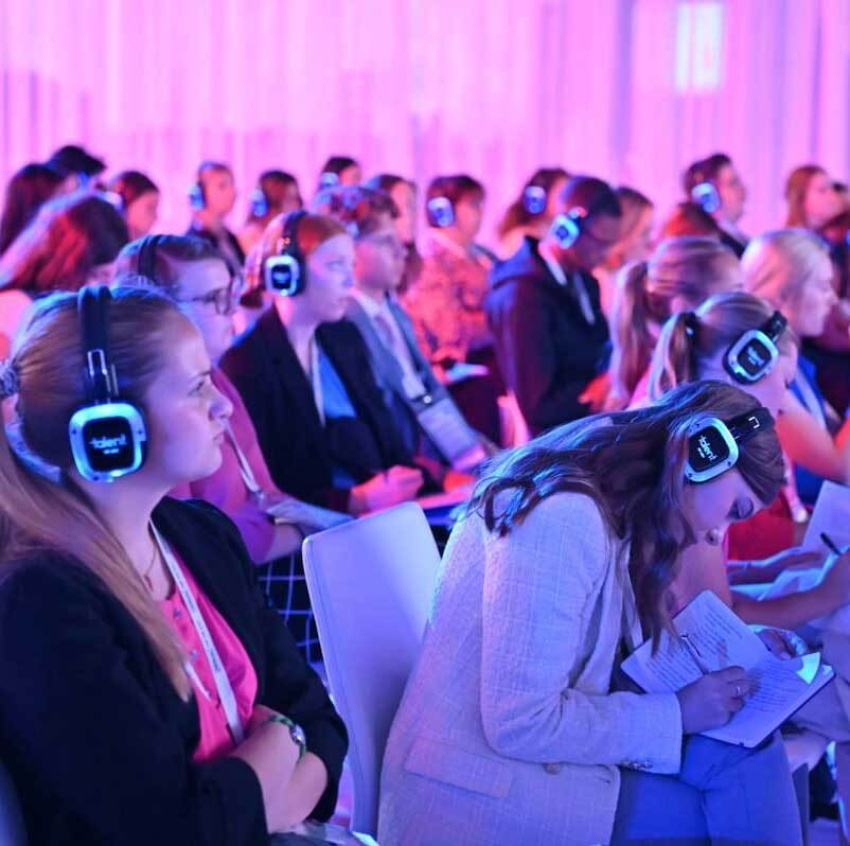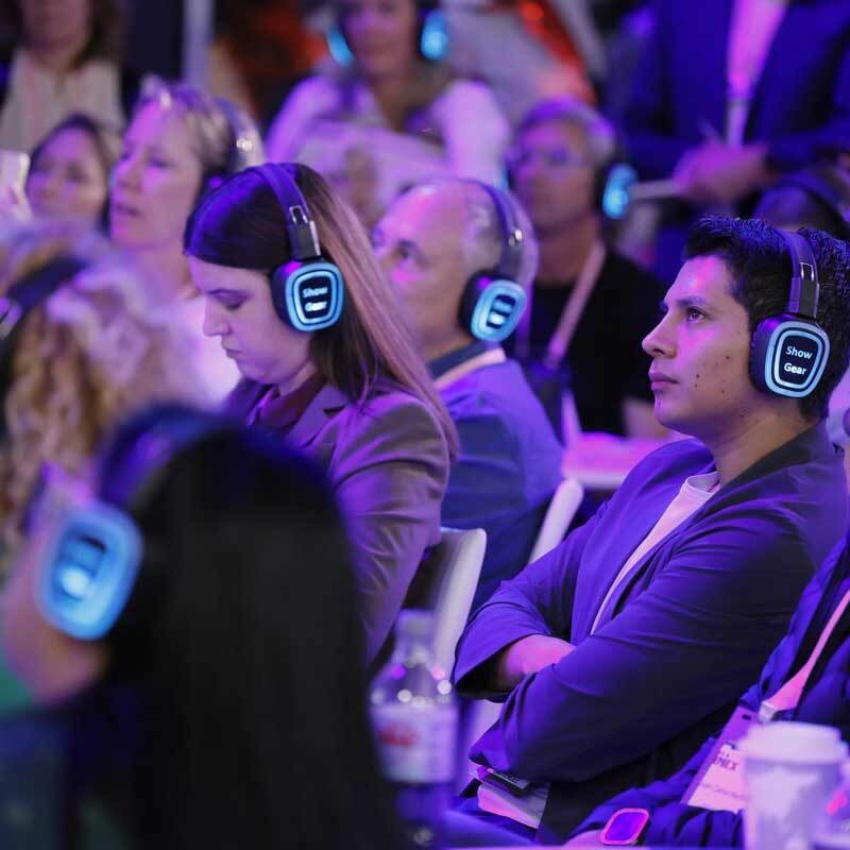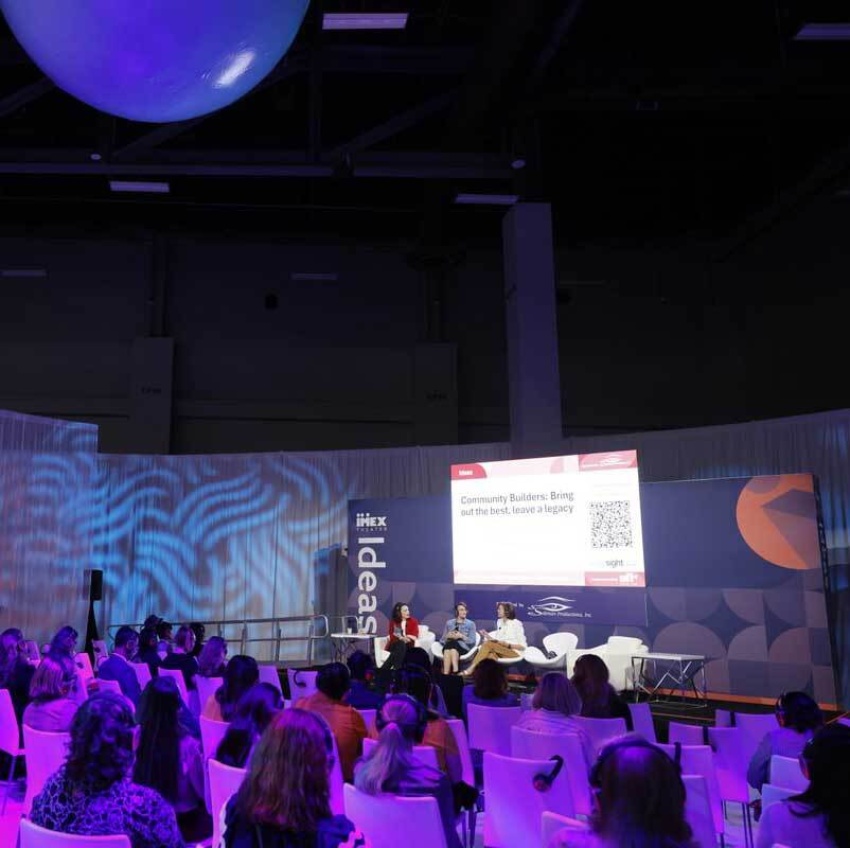Authenticity isn’t optional. Today’s multi-generational workforce quickly spots token gestures. Leadership now means living your organization’s values, managing energy, mastering soft skills—and being human.
At IMEX America 2025, the Leadership and Culture track explored this shift, offering a blueprint for empathetic, people-first leadership and cultural transformation.
Here are five key takeaways:
1. Conscious, human-centric leadership is the new standard
Leadership is moving from hierarchy to humanity. Kim Napolitano, Hilton and Amanda Armstrong, Encore, call this “conscious leadership”—rooted in credibility, respect and fairness. It starts with self-awareness and compassion, creating psychological safety so everyone feels seen and valued. This isn’t a soft skill; it’s a business strategy. Hilton’s “Great Place to Work” status proves culture drives both satisfaction and success.
2. Creativity is a process, not a spark
Hillary Smith, Smith and Stone Creative, reframed creativity as a structured, teachable process. Frameworks like Design Thinking—empathy, definition, ideation, prototyping, testing—make innovation scalable. Tools such as empathy maps and attendee journey maps turn creativity into a reliable growth engine.
3. Energy management beats time management
Holly Ransom, Emergent Global, reminded us: leaders don’t manage time, they manage energy. Overloading schedules leads to burnout. Match high-value tasks to high-energy moments and protect recovery time. Micro-breaks and resilience practices keep leaders calm under pressure.
4. Belonging is a cultural KPI
Belonging is now measurable—and essential. Ame Hernandez, LinkedIn, showed how experiences that reflect diverse identities foster inclusion. Think relatable speakers for Gen Z and activations like “Leave your doubts at the door.” Culture isn’t just HR—it’s a talent magnet.
5. Communication builds trust—and it’s teachable
From Full Out Coaching’s Tanesha Moody’s SAFE feedback model (Specific, Actionable, Focused on Growth, Empathetic) to NBS Global Venue’s Noga Sapir’s collaborative negotiation approach, sessions proved these skills can be learned and systemized.
The challenges ahead
- Burnout and leadership disengagement: Gallup reports only 27% of first-line managers are engaged. A “crazy busy” culture fuels burnout.
- Legacy thinking: “We’ve always done it this way” blocks progress. Change demands data and patience.
- Generational divide: Gen Z wants purpose, feedback and authenticity—clashing with old-school command-and-control.
- Poor feedback: Vague or harsh feedback breeds fear. The “compliment sandwich”? Insincere and ineffective.
- Hybrid disconnect: Remote work erodes spontaneous connection. Intentional rituals—virtual coffee chats, daily huddles—are vital.
The opportunities to seize:
- Adopt creative frameworks: Train teams in design thinking for consistent innovation.
- Empowered execution: Duncan Fisher, Cirque du Soleil, showed how decentralization builds agility and ownership.
- Continuous feedback: Make empathetic feedback a core leadership skill.
- Events as talent magnets: Design experiences that showcase culture and belonging.
- Model self-care: Leaders who prioritize well-being give teams permission to do the same.
Back to the track. We’ll be back on the leadership and culture track at IMEX Frankfurt 2026. Stay tuned.
Report created with the help of Snapsight and SparkAI.





